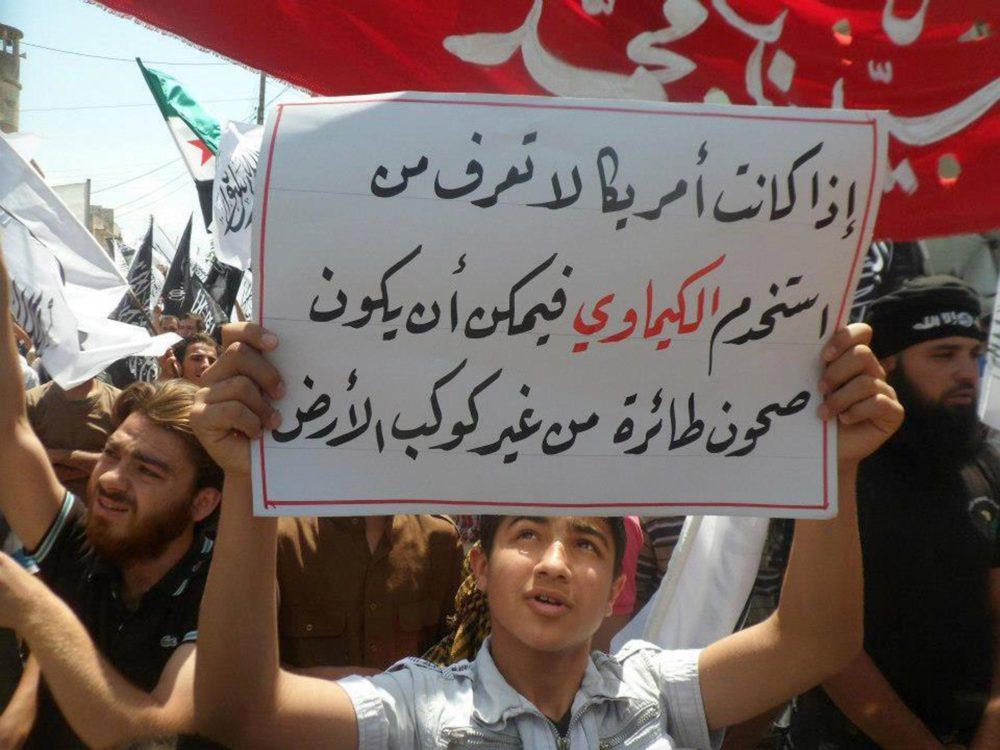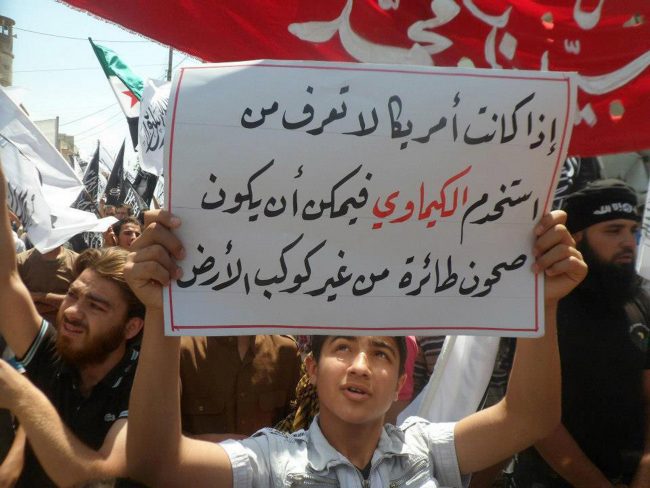
An anti-Syrian regime protester holds up an Arabic sign reading (Courtesy of AP)
New questions were raised last week after reports of chemical warfare by the Assad regime and rebel forces came to light.
Following Israeli missile attacks on Syrian munitions sources, the issue is becoming increasingly focused in the immediate Middle Eastern area.
Patrick Walsh, a Tower Center fellow and retired admiral, said, “What we see here now is a situation that continues to escalate in the region.”
“It’s quite clear from the Israeli point of view that the Syrians have crossed the red line.”
According to Walsh, Israel’s stance comes from the expectation that “these [Syrian] arms would be used against the Israeli population.”
The allegations of chemical warfare came in the context of being used in the civil war that has cost at least 70,000 Syrian lives. U.N. officials Monday strongly suggested that the chemical weapons may have been used by rebel forces and not the official government. It still, however, remains unclear, and Walsh said that the fact of chemical warfare being used period creates “potential for instability throughout the region.”
Israel’s response raises concerns on its own.
While Walsh doesn’t “see [the missiles] necessarily as precursor to direct military action on the part of Israelis,” the attack “was intended to send a very clear, unambiguous message to Syria in terms of what they would tolerate and what they will
not tolerate.”
Beyond the independent choice by the Israeli forces to launch the attack are larger questions surrounding the state of warfare technology.
“On the subject of chemical weapons, [Israel’s attack] certainly highlights the danger of any weapons of mass destruction in the hands of irresponsible actors,” Walsh said. “The direct concern for the United States should be and should always be that once this stuff is out, we can expect it to target either our allies, our friends, or ourselves.”
While the United States may not be in the immediate “line of fire,” Walsh said, “the direct concern for the United States is where this can go and where it can end up and how it can be used.”
“It underscores the importance of having an ally that has a likeminded set of principles and values and concerns in the Middle East,” Walsh said. “And how important it is to stand by their side in times of real threat to security.”
Walsh said that the existence of chemical weapons are more alarming than which side uses them.
“Anytime you have a weapon that can damage large numbers of the population or can take out innocent life like this,” Walsh said. “It should be a direct concern of the United States.”









